If I have never seen the world, I may also feel honored. However, I have seen the prosperous world and realized that domestic TV is too infatuated with the present...

Since ZTE was locked up in the "little black house", Huawei's exposure rate has been a bit over the standard.
From the arrest of Meng Wanzhou at the end of 2018 to the appearance of 5G and folding screen in Barcelona in early 2019, Huawei won the true biography of "the eighteen palms of the dragon.
In May, because of the so-called "state of emergency" in the United States, Huawei was not only included in the "entity list", but also faced "white gloves" such as ARM, Google and IEEE in the international market. But even so, Huawei did not "grovel" and took out two "nuclear bombs"-Hongmeng & Ark.
One is the creation of the world, and the two are passed on.
Later, due to various reasons, the "cut-off decision" became a "probation", but it also pushed Hongmeng into the fire pit.
Sure enough, Hongmeng suffered a lot of "killing" and diss while still in her womb.
Some people say that Hongmeng has the opportunity to compete with Android and iOS to open a new ecological order.
Some people say that Hongmeng is an empty city plan, is painting cakes, and is engaged in patriotic education.
But on the whole, the wind of killing has overwhelmed the diss.
Until Huawei's developer conference:
On August 9, Huawei officially announced the launch of its self-developed operating system Hongmeng at a developer conference held in Dongguan, Guangdong.
On August 10, Huawei's brand glory released the first smart terminal with Huawei Hongmeng OS operating system-Glory Smart Screen.
All kinds of voices hesitated for a moment. Developers who once had little voice rushed forward. Their "pursuit" of "facts" and the truth immediately exposed the bubble of "fake empty space" from the media. In particular, they are invincible when they speak with code at every turn: open source China is a piece of bad news, and many developers are full of cynicism.
A bunch of professional terms that you don't understand are falsified. The key is that they also like to talk about Linus's "Talk is cheap. Show me the code.
What is the difference between this and the self-media praising and killing Hongmeng for 10w?
It's just a "right to speak" to make waves.
One wants to take it to heaven, but it is inevitable that he will exert too much force; one who wants to take it to hell is also unkind.
Of course, we do not deny the intention of some self-media to "hope for success". Although it is a bit divorced from reality, it is not useless in terms of overall situation; we also do not deny the calmness of some developers to "point out current malpractices". Although it is a bit too rational, their worries are not necessarily sensational.
They say Hongmeng is an empty city?
Hongmeng was born on August 9.
They blame Hongmeng for PPT.
On August 10, Hongmeng was on TV.
They want Hongmeng to Showing the code.
Hongmeng official announced that the framework will be open source this year and all will be open source next year.
But even so, some people still don't believe it; after all, Hongmeng is really only "babbling".
Ordinary people naturally do not believe that Hongmeng can punch Android and kick iOS as soon as he comes out. However, to say that Hongmeng is in a fable, he is completely yellow before walking. His heart is punishable.
Of course, it is also true that Yu Chengdong "said too early" at the press conference.
After all, Hongmeng is still the "combination" of Linux kernel, LiteOS and Hongmeng microkernel. It is far from mature enough and cannot afford the "great future" delineated by the media ".
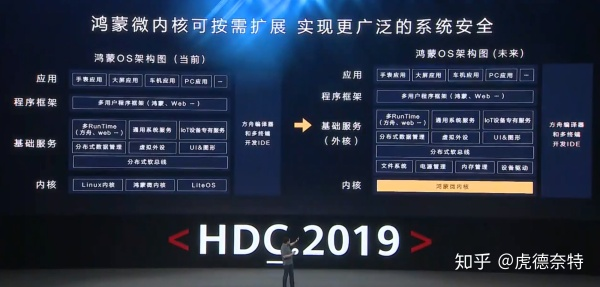
But given the political baggage that Hongmeng carries, all this is forgivable.
Want to know, at this moment iOS is already 12 years old, Android is also 11 years old, hong mengcai was born, how can you expect people to be omnipotent as soon as they are born?
Moreover, many people do not like Hongmeng, not because they really know Hongmeng, but only because Hongmeng belongs to Huawei. Even if Hongmeng has "gained a firm foothold" on the glory wisdom screen, they will still struggle with Hongmeng's Android features.
It is undeniable that Huawei has been a little bit of "sword-wise" in its marketing in recent years, but it is really unreasonable to call "navy" when someone supports Huawei. Moreover, even patriotism can be called "thief" in the eyes of some people, which is a bit of a ruin.
I don't know if Huawei has a navy, but Samsung certainly does. And whether it is Ren Zhengfei or Huawei, they are very clear from top to bottom that "patriotism is not business":
Hongmeng can be bound to a domestic system, but it does not;
Hongmeng can also appeal to aspiring young people, but it does not;
Hongmeng can also rise to the national level to seek policy support, but it does not.
Even in the wave after wave of "anti-Hong wave", Huawei can also complain for itself, pointing out that Hongmeng is suffering unfair treatment, but it has not.
We should know that under the background of the current trade war, the American dream has long been broken and the sun never sets. Huawei can light up the system and play a patriotic card to sell at least 3 or 0.4 billion, but it still does not.
Huawei did not emphasize that Hongmeng is a "Chinese system" and uses a "Chinese core", and is determined to improve the top-level voice of China's Internet. It only emphasizes that "Hongmeng is Android's spare tire", "Hongmeng is 60% faster than Android" and "in case Android is not used, data migration can be completed in 1-2 days".
When the United States repeatedly extended the "temporary license" because of Huawei, do you really think Hongmeng is useless?
It is not so much that Hongmeng has avoided the frontal battlefield of iOS and Android because of its "weakness". It is better to say that Hongmeng is a pioneer. It has the courage to incubate a market from scratch. It also has the spirit that although tens of millions of people have gone forward, what is more, it has seen a certain future.
Such Hongmeng was broken by people to criticize every character in the press conference, why not make people feel distressed.
However, it is precisely because of our love for Hongmeng and our expectation for it that we have more stringent requirements for it: the natural success of 5G has given it enough imagination, the success of the mobile phone has given it greater confidence, and the initiative to avoid Android and open the Internet of Everything shows its foresight. However, the appearance on the wisdom screen is really not so satisfactory.
As the next generation operating system, Hongmeng has no style and texture as the next generation operating system;
Glory Wisdom Screen, as Hongmeng's first time, can hardly see the surprise and romance of the first experience.
We know that this is the first time Huawei has made a system and a TV, but it is also the first time we have seen the Hongmeng system; everyone is the first time. This is not the reason why we "lower the standard" for it.
And because it is Huawei, we have a higher standard for it:
Perhaps, Glory Smart Screen, as a domestic smart TV in 2019, can barely pass the exam;
However, it is not enough to look at LG, Samsung and Panasonic;
In particular, it is Hongmeng's first touch screen work, which is even more mediocre.
Of course, considering the pressure of public opinion on Hongmeng brought by the market, the mentality of "not seeking meritorious service, but seeking no fault" of the Glory Wisdom Screen decided from the very beginning that Hongmeng TV was not so amazing. This is indeed acceptable, but in this way, smart screen 2.0 and Huawei TV must come up with a little "real kung fu".
After all, it is Hongmeng.
Since the Glory Smart Screen is "not satisfactory", what kind of smart TV is what we need in the era of the Internet of Everything?
The changes in appearance can be traced, including mechanical lifting, visual invisibility, home alienation and electronic fish tank. But in connotation, how can we be innovative?
(1)
Television general mobilization
○
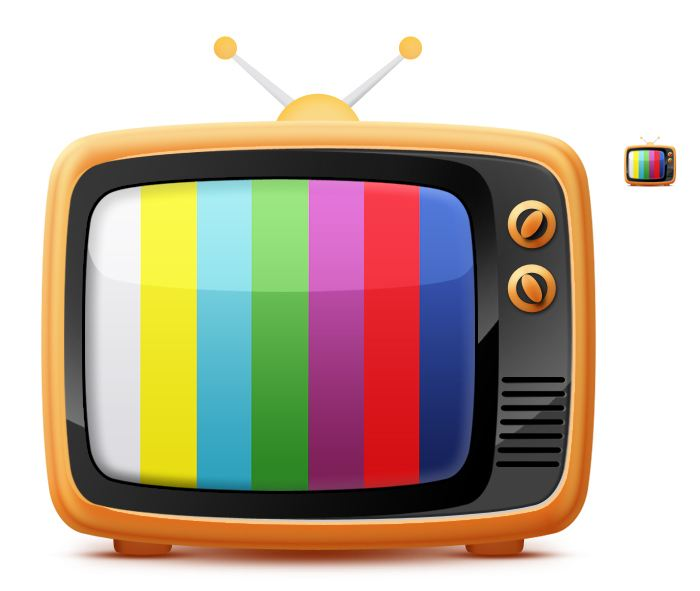
In 1925, British scientist Baird invented the mechanical scanning TV camera and receiver; in the same year, American Sforogin showed his TV system to his boss at Westinghouse.
However, it was not until 1958 that China's first black-and-white TV was successfully manufactured and color TV was piloted in 1973.
When TV sets enter most families as the "first" electrical appliances, traditional TV gradually enters the mature stage from the wild stage; the TV industry in which it is located is rapidly standardized as the number one player of mass content consumption, resulting in TV stations, TV content providers and TV operators.
With the popularity of the Internet, especially the impact of the mobile Internet, traditional TV has gradually shown a decline, and Internet TV has emerged.
Especially with the advent of the smartphone era, APP ecology has opened a door to the Internet world within reach for users, and Internet TV has gradually become a vassal of smartphones.
Watching smart phones change from large screen to full screen, with higher and higher pixels and larger photographing functions, when its potential is gradually exhausted, many mobile phone manufacturers begin to switch to smart TV again. The 5G Internet of Everything is a fire for it.
If traditional TV spells channels and resources.
Then Internet TV spells means and ambition.
As for smart TV, it is technology and vision.
The meeting between traditional TV and the Internet is not beautiful. In 2004, the Internet can play bean curd block-sized and vague videos online, which shook their inherent pattern.
However, the development of Internet TV has not been smooth sailing. In 2013, Letv's first generation TV X60 was officially released, officially opening the first year of Internet TV.
On the contrary, the rise of smart TV took advantage of people's danger. In 2018, Xiaomi took over the baton from Letv, which collapsed and stepped on the corpses of countless people to lead the way in terms of cost performance.
Of course, these time points are not accurate, especially the boundary between Internet TV and smart TV is blurred, but it is undeniable that Letv and Xiaomi have led the two eras.
As for Hongmeng TV's "heart change" and "brain change" at this stage, its body is still quite honest.
②
Letv TV: Blindfold Run
○
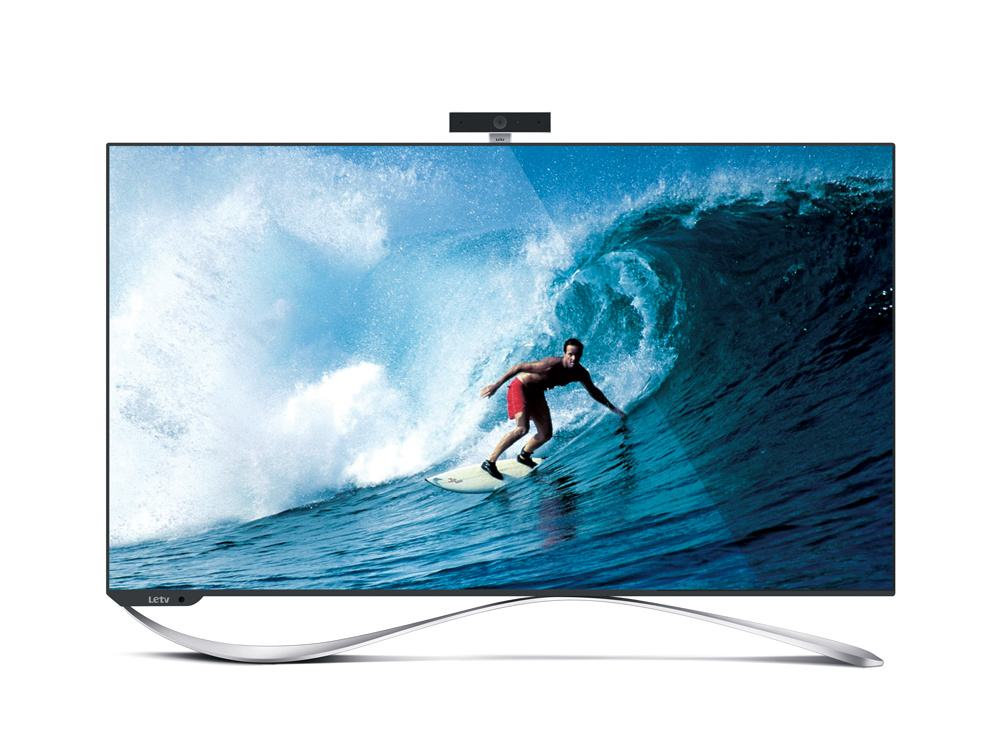
After CTR display screen and plasma screen, LCD screen was widely used before the birth of Internet TV.
Traditional TV is too far away from us, but Internet TV (Internet TV) still seems to be yesterday.
The concept of Internet TV (OTT TV) was first introduced to China in 2009. TCL also launched a TV called "Smart Screen iCE SCREEN" in conjunction with Tencent as early as 2012. But Letv really pushed Internet TV to the forefront.
Once upon a time, Jia Yueting achieved the so-called PPT myth with a cry of "blindfolded running", but the dream was not awake, but people suffocated.
In 2012, LeTV released the "LeTV Box", which uses genuine high-definition content as a selling point and opens the content payment mode.
At that time, the TV market was still dominated by the five traditional TV manufacturers (Hisense, Skyworth, TCL, Sharp, Samsung).
In 2013, Letv released the "super TV" series of products against Samsung and even shouted the slogan of "subversion", which triggered the 2013 Internet TV boom. Aiqiyi, Ali and Xiaomi joined the competition one after another.
In 2014, Super TV suffered a severe setback due to the strict control of radio and television, and the TV was still on sale, and the broadcast control platform was already marginalized.
In 2015, the war between Letv and Xiaomi spread from TV to mobile phones.
In 2016, the debt crisis broke out in LeEco's mobile phone supply chain, which triggered a break in the financial chain of LeEco's system.
Letv's "crash" has become a watershed for Internet TV. Jia Yueting left the United States to build cars in 2017, Li Huaiyu left the whale in 2018, and Feng Xin was arrested and imprisoned in 2019. But before that, Letv TV had been considered the best asset of Letv's system and had a brief peak.
In September 2016, for every 5 TVs sold in the domestic market, one is LeTV Super TV.
In 2018, LeTV took a 3 billion to change its name to Lerong Zhixin and set off again, and released the fifth-generation Super TV in May 2019.
However, after more than two years of ups and downs, LeTV's market share has long been divided by other manufacturers, and consumers have lost their confidence in it; the former disruptors have been subverted by themselves.
However, Letv's contribution to the TV industry is also certain:
1. Leading TV, a sunset product, into a new era;
2. Rapid iteration to introduce scientific and technological achievements into the TV industry;
3, break the TV limitations and introduce the Internet ecological operation.
(3)
Millet TV: Crossing the River by Touching Stones
○
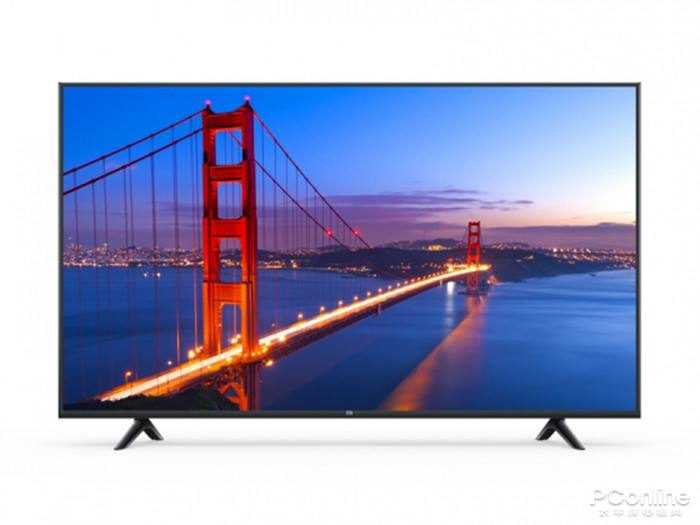
In September 2013, Xiaomi, which was only three years old, released its first Internet TV, two months later than Letv's super TV launch time.
Since LeTV was questioned at that time because of its workmanship and quality, the birth of Xiaomi TV had a good public opinion environment.
Letv then pulled back a game because of copyright, which is exactly where Xiaomi is constrained. However, the successful transplantation of the mobile phone market to the TV field to further squeeze the Internet TV bubble is still rather careless.
Although Letv initially lowered the TV price, it was Xiaomi that made it out of its price/performance ratio.
However, it was not Xiaomi TV that defeated Letv. Letv wanted to learn from Xiaomi to copy the success on TV to the mobile phone, but ignored the white-hot mobile phone market at that time. Finally, it was dragged down by its friendly Letv mobile phone.
After round after round of reshuffle, traditional TV and Internet TV giants have faded out of sight. After Letv, storm defeat and micro whale pains, Xiaomi finally dominates.
In July 2019, Lei Jun announced that Xiaomi TV had the first sales in China in the first half of the year.
But then some media people criticized Xiaomi TV for "no technical power, no manufacturing power, and no service power". This is the sorrow of the color TV industry in the Chinese market.
As Luo Yonghao said, "it's too ridiculous", Xiaomi certainly does not have the so-called "core technology" in everyone's mouth, but it is inevitable to say that it is useless and biased. Is it true that millions of Xiaomi TVs on the market are fake?
There is no denying that Xiaomi is well versed in the "Internet bonus": the underlying system is Android, the chips are collected externally, and the playing method of MIUI TV is similar to "the Chinese version of Apple TV"; However, it has surpassed the color TV industry for decades in just a few years and has become the first in the country. It has not provided a more cost-effective choice for the majority of users. Isn't this the value of Xiaomi TV.
Although it is not the progress of the times to stay at the low price selling point of low-end products, at least it has brought a crisis to traditional TV and pointed out a way for new players.
And what it brings to the market as a whole is far from a word of laziness and speculation that can be rejected:
1. Xiaomi TV has brought consumers a full screen, mural appearance, split design of screen and host;
2. Xiaomi TV has introduced PatchWall artificial intelligence system, Xiao Ai classmate and voice control remote controller;
3. Xiaomi TV is cooperating with the three major content platforms of Youaiteng, trying to bring massive content to consumers.
④
Glory TV: Cheng also Hongmeng, defeated also Hongmeng
○
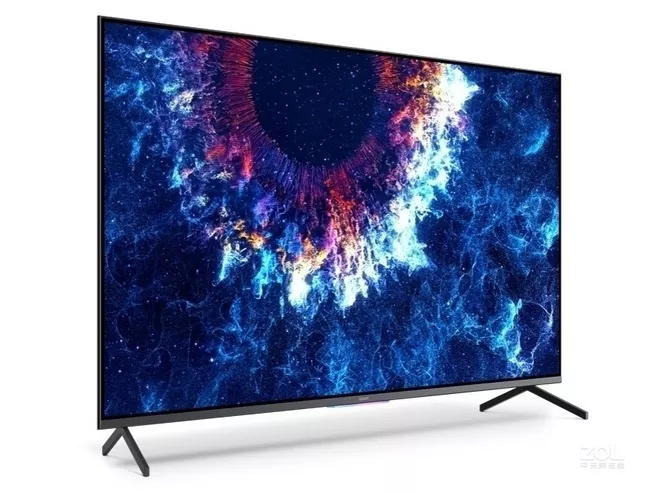
If Hongmeng didn't rush to release?
If glory didn't carry hung meng?
If the wisdom screen can show wisdom?
Unfortunately, there is no if.
As the next generation operating system, Glory Smart Screen is really hard to satisfy.
However, the result of the first match of more than 3000 in 5 minutes shows that it still has its merits.
To be honest, built-in Hongmeng OS, equipped with Honghu 818 smart chip, AI lifting camera, support for NFC magic flash projection, control screen and other functions are indeed the unique highlights of Glory Smart Screen.
But the built-in OS has no visible interaction difference;
Honghu 818 smart chips are difficult to see with naked eyes;
AI lifting camera is no longer a new thing;
NFC magic flash projection and control screen are not the only ones;
This makes it difficult to believe in the intergenerational positioning of Glory Smart Screen. Letv has broken the limitations of TV. Xiaomi has a richer user experience. What is Glory Smart Screen?
From UI, design to interaction, we must have experienced full screen and camera wars for a long time.
Of course, it is not to say that the glory and wisdom screen is really so unbearable. It can only be said that our expectations for the Hongmeng system are too great, and we will inevitably be disappointed.
From Huawei's point of view, Glory Smart Screen at least matches the domestic smart TV and is somewhat compatible with mature interactions on mobile phones. It gives Huawei a high starting point.
And strategically, in addition to Hongmeng's blueprint for the future, Huawei has embarked on another apple path: integrating the power of self-developed chips, operating systems and the user base of smart phones to obtain the certainty dividend of the mature market of Internet TV.
From an outsider's point of view, Glory Wisdom Screen, as a latecomer, cannot create too many novel experiences, which is its original sin.
However, for people in the industry, the brand premium brought by Huawei's entry into TV is exactly what the whole industry lacks at present. It can help Xiaomi to make up another leg of China's TV industry, so that more players can see the potential of the TV industry in brand and content.
⑤
LG & Samsung & Panasonic
○
If I had never seen the world, I might also feel honored.
However, I have seen the prosperous world and realized that domestic TV is too infatuated with the present.
Some people may think that our requirements for Glory Smart Screen are too harsh, but if you have seen LG, Samsung and Panasonic's definition of future TV, you will think that Chinese TV is really too conservative.

LG's Liftable TV Signature OLED TV R
LG Partners cooperated with Foster, a design company, to launch the world's first mechanically liftable TV Signature OLED TV R at the Consumer Electronics Show in Las Vegas, 2019 and Milan Design Week 2019.
Signature OLED TV R has three different modes: full view (full screen), line view (1/4 screen) and zero screen (hidden screen); When the user does not need to use the TV function, it can be reduced to a narrow screen or to a completely hidden state. Even if it is completely "hidden", the user can play audio content through the sound bar.

Samsung Micro-LED panel
During CES, Samsung's Micro-LED panels on display absorbed the self-luminous characteristics of OLED screens, and at the same time, they can achieve as much borderless design as possible, which means that users can splice the screens into different sizes according to their own needs. Samsung once formed a 219-inch The Wall giant TV wall at CES.
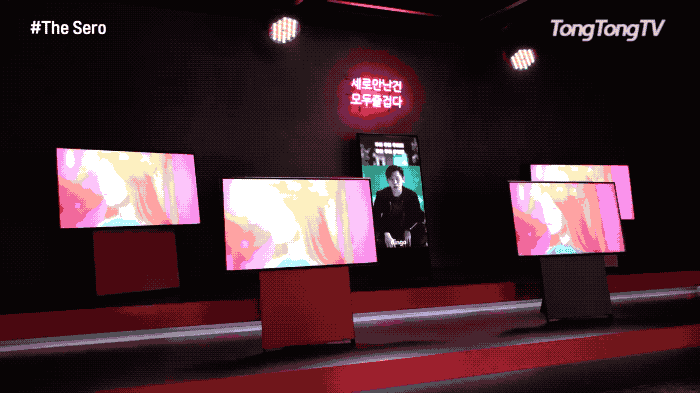
Samsung TV Sero
In order to attract heavy users of Instagram and short videos, Sero also has a rotatable bracket, so you can use it horizontally or watch those vertical videos 90 degrees.
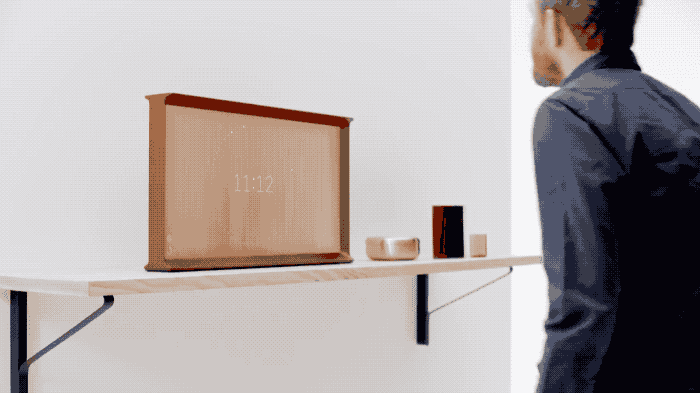
Samsung Serif TV Series
In 2016, Samsung and French designers Ronan and Erwan Bouroullec launched the Serif series of TVs, which blurred the boundaries between home appliances and furniture: the designer turned the TV from an electrical appliance into a piece of furniture, with a shelf-like surface on the top. It can be used to place remote controls, ornaments, vases and other small objects, while the woven cloth board on the back covers the wires and interfaces well.

Panasonic Vitrine TV
During Milan Design Week in 2019, Panasonic cooperated with furniture brand Vitra and designer Daniel Rybakken to launch a TV set called Vitrine: it combines transparent OLED screen with glass to integrate art, design and technology, unlike most TV sets that turn black when turned off. It looks more like a smart glass cabinet.
The bold designs of LG, Samsung, and Panasonic, plus a "Sony screen" that is regarded as the Bible, although they are very difficult for ordinary people to contact with in terms of price; but this does not hinder the "rich" and "caring people" Amway, and domestic TVs are suddenly out of order.
We have won a full victory in the screen war on mobile phones, even in the future 5G and folding screens will not lose to others. Can't we really stage a "big counterattack" on TV?
Especially in the era of the Internet of Everything, this is a war we cannot lose.
⑥
The living room has become the center of the family again.
○
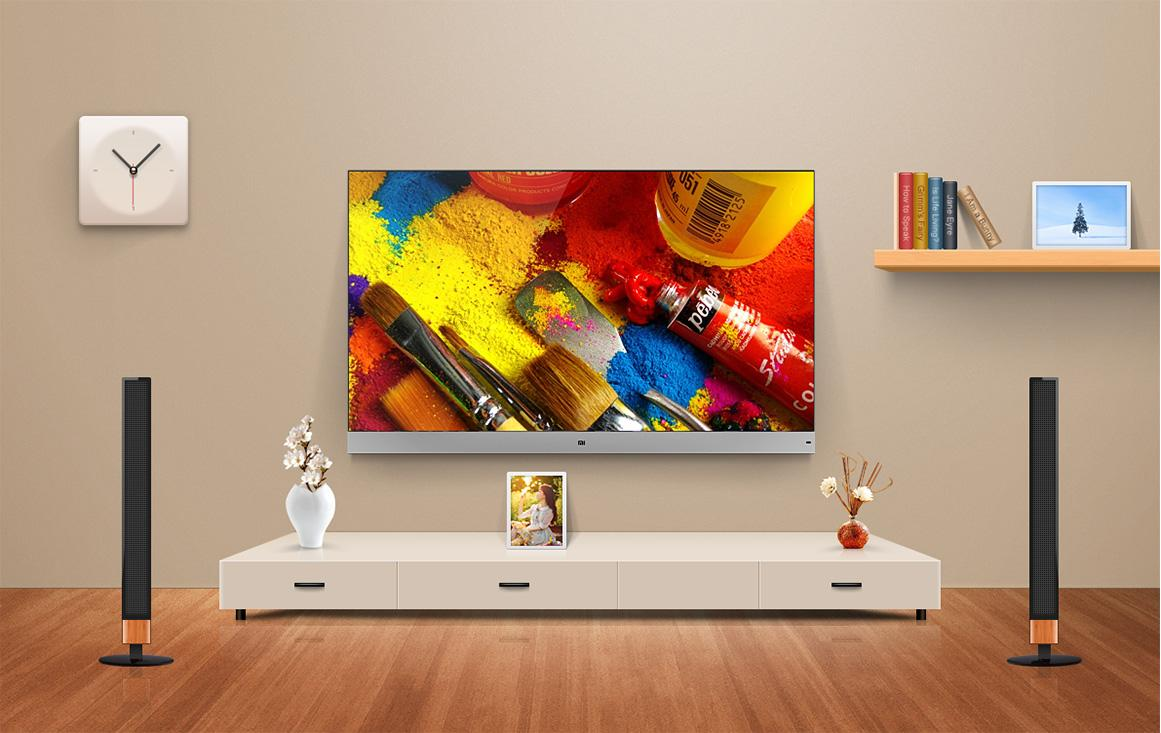
It is an indisputable fact that the development of smart phones has reached the ceiling.
Even Apple began to lack confidence in its hardware and began to want to dig for gold in content services.
Not to mention domestic mobile phones, Huami OV firmly controlled the market and continuously eroded the share of other brands, and began to line up in the iOT field.
It is undeniable that smart wear has been developed to the extreme by smart phones. Before new materials, new technologies and new breakthroughs are made, it is difficult for other wearable products to replace them. This makes the word smart home rejuvenated once again, and smart TV, as the center of the family, still has the potential for redevelopment.
Although the current TV market continues to shrink, young people's time is even more divided by content such as microblogs and WeChat, short videos such as tremolo and fast hands, and live broadcast platforms such as tiger teeth and fighting fish. However, considering young people's personality of liking the new and disgusting the old and the increasingly rigid situation of content platforms, more and more people are immune to fast food content and they are fleeing.
However, TV may turn over again and become the next Internet portal after the mobile phone. Her long content, deep interaction and immersion experience will be enabled.
With the development of AI technology and the arrival of 5G era, the Internet of Everything has given smart TV infinite imagination, and capital cannot turn a blind eye.
Under such a situation, smart TV can integrate Huawei, glorious routers, desk lamps, weighing scales and other smart hardware products, as well as hammer air purifier, Nubian smart door lock, 360 router, camera, smart door lock, etc., and coordinate smart washing machines, smart refrigerators, smart sweeping robots, etc. to become the absolute center of home smart hardware.
In the future, smart TV will not only be supported on the ground and hung on the wall, it will be possible to integrate with special materials and walls, and even break the limitation of wall corners and turn the whole house into a three-dimensional display.
Or it doesn't need a screen carrier at all and can be holographic displayed in the air.
Hongmeng was prepared for this. Apple's seven major systems and Android's Fuchsia are the same.
Of course, when it comes to smart homes, we have to mention the real estate that is already very sick.
After all, consumers must have a relatively fixed residence before buying a smart home, and smart TV, as an electrical appliance with a lower replacement frequency, its future is bound to the house.
However, if house prices remain high, it does not mean that smart TV will have no place to show its talents. It is still possible to appear in smart communities of single apartments, long-term rental apartments and real estate companies based on families.
After all, the number of people who can consume in this way is limited. If you want to promote the society into the era of the Internet of Everything, real estate companies will inevitably need to make "sacrifices". For communication manufacturers to come in or go out, they must be given first before they can take it.
⑦
The biggest weakness of smart TV
○
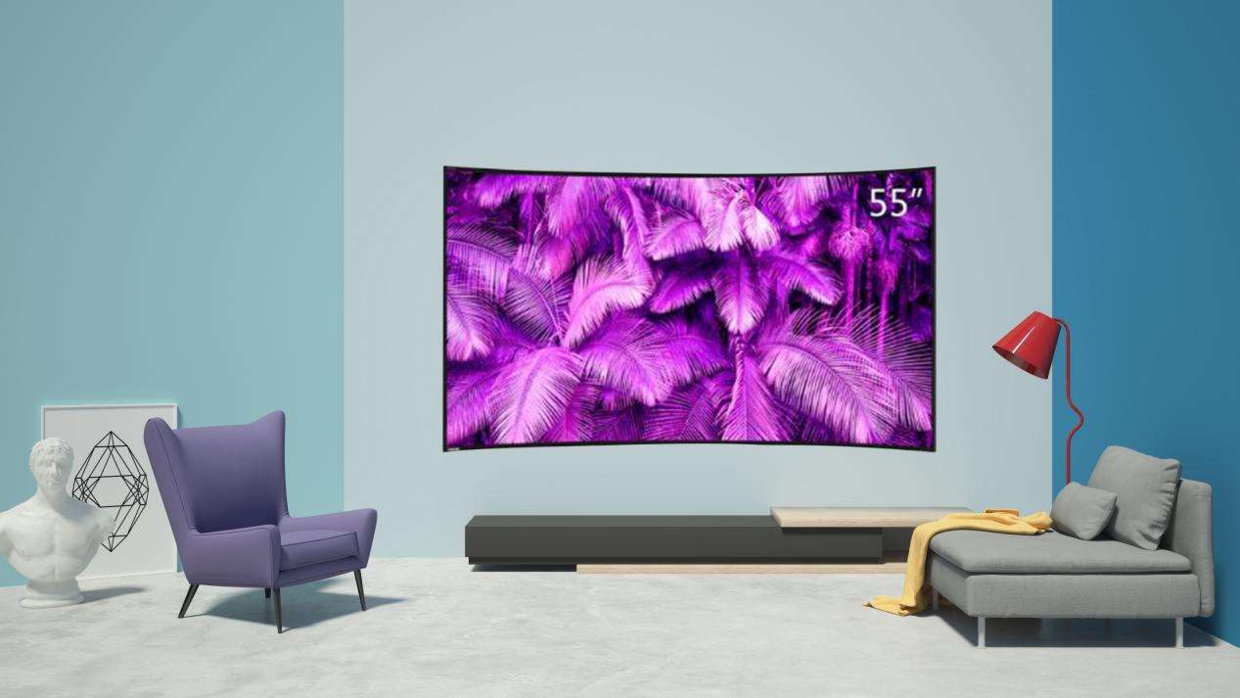
Considering the subversive nature of the Internet of Everything to the traditional consumption scene, it is certainly not a matter for the communications manufacturer.
Of course, smart TV may become the center of living room and even family, and communication manufacturers cannot cover all aspects.
What we can predict is that with the further development of artificial intelligence, machine empowerment and biotechnology, although the overall human travel depth and experience will become more efficient; but for individuals, the network weight will inevitably undergo the next wave of division. The living space and work experience of ordinary people will be further compressed: first, they do not have more capital to try more high-tech, and second, this high-tech growth on capital will only become the natural privilege of capital.
Although it may take ten years or more to enter the era of the Internet of Everything, as long as the Internet of Everything begins, it will inevitably affect enterprises, society and individuals.
To some extent, it is a struggle for the right to speak, the redistribution of social resources, and the reorganization of social structure.
After all, what content users will contact in the future will be indirectly determined by communication manufacturers and content producers under the pervasive intelligent hardware, and the consumer and social behaviors made by users imperceptibly will be affected by the content they see.
Therefore, it is possible to differentiate between hardware and software in the future. Of course, necessary supervision is indispensable.
On the smart hardware side, Huami OV has already entered the market.
Content production here Youku, Aiqiyi and Tencent Video have not been able to enter the play.
It is either the N generation of fried cold rice or the illusion of making inferior ancient costumes. Although the foam of small fresh meat is tearing apart, works like "Chen Qing Ling" and "The Patriarch of the Magic Way" really lack the power of the first world war with the Netflix "Naked Supervision" and Amazon's "Black Robe Picket". This is an ideological dispute, but also a contest of cultural details.
Our short board in content production will inevitably drag the popularity of smart TV.
Without good content support, even the best hardware is hard to support.
It is not easy for us to find a little sense of existence in the hardware. Do we have to completely lose the right to speak in the content?

How hot the TV used to be, the streets were empty.
How cold TV is now, I admire myself.
After the Internet came, the TV industry went from bad to worse. The computer took the curiosity, the mobile phone took the attention, and even the tablet could kick it.
Today, the Internet has become what people call "infrastructure", and even has the same strategic significance as the energy and transportation industries; when the potential of mobile phones is exhausted, capital has noticed that smart TVs can continue to work.
In the era of traditional TV, TV is more of a large household appliance, which is heavy, difficult to use, and the startup rate is getting lower and lower.
In the era of Internet TV, based on Android system, massive content on the Internet and friendly UI interface, TV has gradually changed from a large household appliance with a life cycle of five to eight years to an electronic fast-moving consumer product with a life cycle of only two or three years.
In the era of smart TV, it is no longer satisfied with being an electronic fast-moving consumer product. It wants to overview the family's smart devices and become the absolute center of the living room and even the family.
It is certainly a sea of stars ahead, but it is also necessary for us to recognize that the current Internet of Everything market is still a beach.
We came, we saw, but we still need to conquer.
PS:
The head map comes from behance author @ Ferdi Rizkiyanto
Part of the material comes from @ Zhihu @ Tiger Smell
The copyright of this work belongs to 何鲸洛. No use is allowed without explicit permission from owner.

New user?Create an account
Log In Reset your password.
Account existed?Log In
Read and agree to the User Agreement Terms of Use.

Please enter your email to reset your password
There are so many bosses, I only serve you